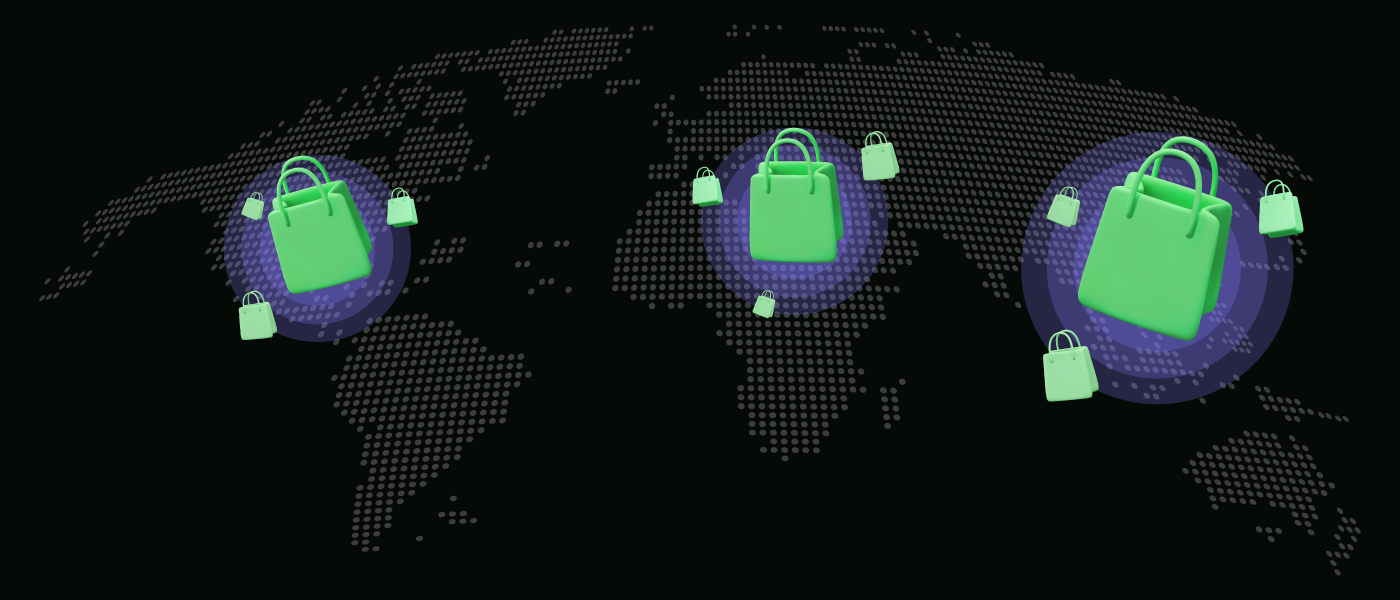Today, people want everything at their fingertips. Likewise, if you want to expand your online business pan Asia, Thailand is one of the most logical choices. Since it is a founding member of The ASEAN Free Trade Area or AFTA, Thailand takes pride in having a strong relationship with Malaysia, Singapore, Indonesia, Brunei, the Philippines and the like.
With a 67 million population, economically, Thailand enjoys a healthy customer base. Besides, steady exports, consistent growth, abundant natural resources, and affordability attract more shareholders. All of these add to the growth and prosperity of Thailand’s business sector. Keeping these positive factors in mind, you can tap into the sector of e-commerce in Thailand to enhance your business.
However, along with the positives, there are some hurdles as well. In this article, you will get a detailed idea about Thailand’s business environment, its challenges, the market scenario and how you can expand your business despite the shortcomings. So, without further delay, let’s dig into it
Thailand’s Economic Environment
Without governmental approval, it is impossible to carry on e-commerce business in Thailand. The government reviews your business proposal and its tentative growth. It either approves the digitalization of your business or asks you to look for something else. The reason is that Thailand’s government regulations aim to:
a. Develop strong internet connection in the provinces
b. Enhance infrastructure in logistics
c. Encourage business integrations along its geographical borders
After Indonesia, Thailand is the second-largest economy in Southeast Asia, with per capita GDP accounting for US$7273.56. According to the World Bank, Thailand is ‘one of the greatest development success stories’, with the least unemployment worldwide. However, the influence of the younger generation of consumers and innovation from both the private and public sectors are the driving force behind e-commerce Thailand.
The Thai government has already stated the primary areas that it will focus on in 2022. There are four areas of concern for Thailand’s economic growth:
- Consistent maintenance of household expenditure
- Promoting recovery and bringing necessary changes for the growth of the tourism industry
- Expanding to new market areas through exports
- Encouraging private investments (inclusive of EEC or Eastern Economic Corridor)
Market Entry And Getting Help
The market entry policies can differ from one firm to another. This is because the way you want your business to enter the Thai market largely depends on the firm’s goals, the barriers to entry, market competition and business commitment. Here are three ways you can enter the Thai market:
Initial Marketing Campaigns
Brands conduct initial marketing campaigns to test whether people, precisely the target market, are responding to their products or services. Initial marketing campaigns are like A/B testing of a product or service to understand the people’s response. If you have less experience in the initial marketing campaign, you can partner with marketing agencies and industry experts.
Selling Cross-Border
Since Thailand is a part of the ASEAN, it is wise to utilize the neighboring marketplaces and sell across borders. With an increased demand for foreign products, this trend of selling across the border will surely increase in the near future.
Besides China, no other country can conduct cross-border business so effectively. However, there is great room for the Thai business industry as major parts of it are still unexplored.
Domestic E-commerce Websites
Here, the drill is to import products into Thailand and sell them via domestic e-commerce channels. One of the greatest advantages of this method is less shipping cost and time. However, at the first chance, you have to have a local entity where you can function as an importer. Therefore, if you want to increase your online and offline sales, this is a suitable option. Since you are selling in ASEAN, you may have to handle many countries together.
Challenges For Doing Business In Thailand
Every marketplace has its set of challenges, and e-commerce Thailand is no exception. Indeed, the population of Thailand is a major driver in the business industry. However, that is not enough. Here are the challenges that you need to overcome to do business in Thailand:
- Choosing popular or established brands or foreign companies
Foreign brands have long entered and made a mark in the Southeast Asian market. Therefore, if you are an e-commerce brand or a small and mid-sized enterprise, Thai consumers’ loyalty and trust toward established brands can threaten your growth and opportunity.
Three clauses under this sector can pose a threat to you:
- If you are planning to launch your own products
- If you are trying to popularize a private brand
- If you are outsourcing products from China
In 2018, Deloitte surveyed Thailand consumers, which inferred that Thai consumers are more interested in foreign products belonging to the categories of personal hygiene, gadgets and things that have no connection to the household.
- Price consciousness of consumers
In a Forbes article titled ‘This Company is Steering Thailand’s E-commerce Explosion’, the consumers of Thailand have been termed as ‘incredibly price conscious’. In another survey by E-commerceIQ, researchers found that Thai people are keen to buy cheaper products online.
Further, the average basket size here is lesser than that of Singapore, Myanmar and the Philippines. The irony here is being the second-largest economy in Asia and one of the fastest growing e-commerce markets, Thailand lags behind due to the price consciousness of the customers.
- Online duplicity and fraud
The Thailand Internet User Profile 2017 of ETDA has reported that 51% of Thai consumers are afraid of online scams. They have denoted these online scams as a potential reason for not indulging in online shopping.
Half the complaints the agency receives are on fraudulent online transactions. Some of the fraudulent activities reported by Thai consumers include receiving a different product than what they ordered, and products never reaching customers despite paying in advance.
However, e-commerce band owners still have hope. Research by Experian has found that 51% of Thai consumers are open to sharing more data online if they know it will be protected from fraudulent activities. If you have to capture the Thai market and ensure to build the trust and loyalty of the consumers on your brand, you have to present to them with more positive customer testimonials. Also, quick and frequent responsiveness will add to your company’s or business’s reputation and growth.
- Heavy use of ad blockers
Since the people of Thailand are tech-savvy, they prefer to steer away from unwanted ads. Of the entire Thai population, 46% of them use ad-blocker tools. So, if you have ads on websites and apps, there is a high chance the Thai population will overlook them. As a result, your efforts in digital promotion will be in vain.
However, the Thai industry and business hub considers a few ways of promoting products and services as valid:
- Produce educational and creative content
- Indulge in promotional content
- Social media ads
- High tariffs
Several US products do not reach the Thai market due to high tariffs. If your product competes with locally manufactured goods, you must pay the highest tariff to import it to Thailand. While there is an 80% tariff on motor vehicles, the tariff for medicines and pharmaceutical products is as low as 10%.
Market Concentration
Increased use of mobile phones and the internet has resulted in the growth of e-commerce Thailand. Since 2017, the Thai e-commerce market did not have to look back. Currently, the worth of the e-commerce market in Thailand is more than $27 billion, as reported by JP Morgan. By 2023, this e-commerce growth can rise by a compound annual rate of 7.7%. Besides, the improvement in logistics and online payment systems gave rise to the growth of the e-commerce market in Thailand.
According to the ‘Thailand 4.0’ policy, the government aims to build and nurture more online applications and digital platforms to generate hassle-free online activities.
Through a successful cross-border e-commerce strategy, the country has acquired 30% of the e-commerce market. Further, PromptPay being the government’s e-payment system is the key driving force behind e-commerce activities in Thailand.
Trading Across Border
Thailand needs more domestic e-commerce sellers to enhance its e-commerce sales volume. At present, there is only a 30% share of the cross-border e-commerce market in Thailand. In addition, 50% of Thai shoppers have already reached abroad to make a purchase. Therefore, if you can promote cross-border trading correctly, there is a high chance of business success.
Transportation
To reach your Thai consumers safely and timely, you need a reliable and responsible logistics provider. Although the shipping experience can differ, here are the general steps you need to follow to ship your products:
1. Find a shipping partner that caters to the needs of your e-commerce logistics.
2. Pay attention to proper packaging, as it can either make or mar your business.
3. Pick the right type of shipping service
4. Provide the necessary shipping details for generating documentation
5. Print the shipping documents and labels and attach them to the package
6. Pass shipment to the carrier responsibly
How Can a Third Party Logisitcs Provider Help You Launch Your E-Commerce Business In Thailand?
If you are looking for a reliable shipping company, Locad is your one-stop shop. Being a successful and reputed fulfilment company for e-commerce brands, Locadtakes pride in helping businesses of all sizes without compromising quality. Wondering how Locad can help you? Here’s the process:
Step 1: Connect
Use a plug-and-play integration to put all your sales channels under one head.
Step 2: Store
Give us the responsibility for your inventory in the fashion you prefer.
Step 3: Send
Now, sit back and track how your customers’ orders are fulfilled and delivered to their doorstep.
Step 4: Grow
Use our integrated sales and analytical tools to get an idea about your business growth opportunities with Locad.
Conclusion
A firm understanding of Thailand’s e-commerce market and the challenges can help you prepare your business better. With the right strategy, and beneficial partnerships in place, you will be able to face these challenges head-on and achieve your business goals effortlessly.











